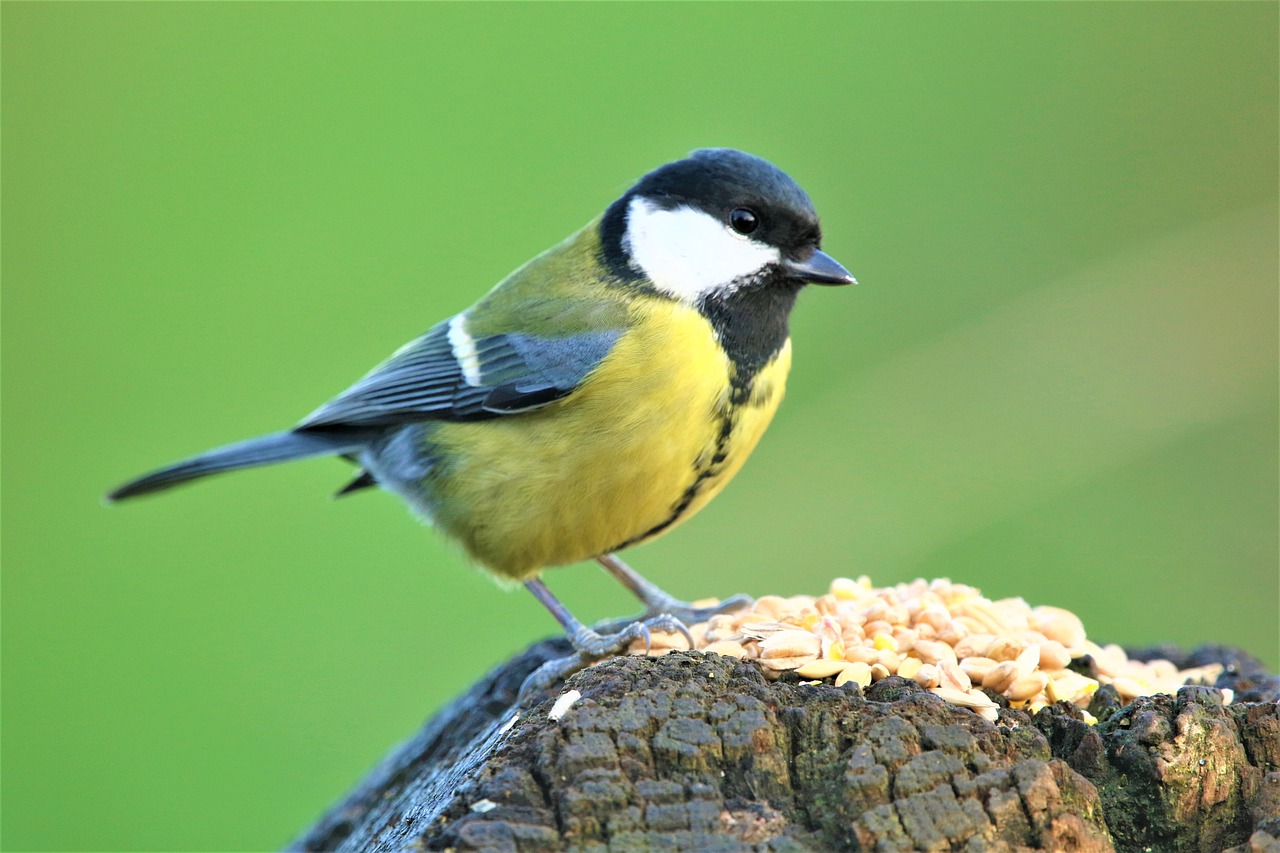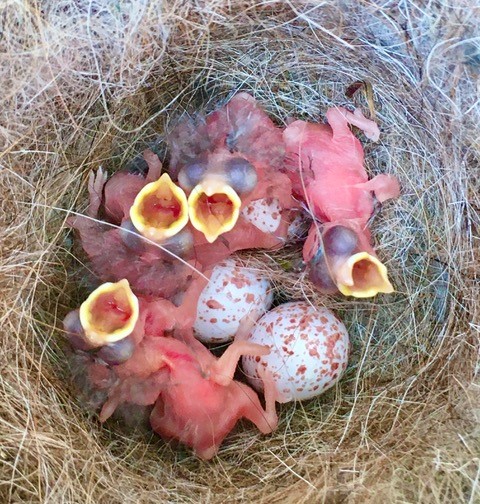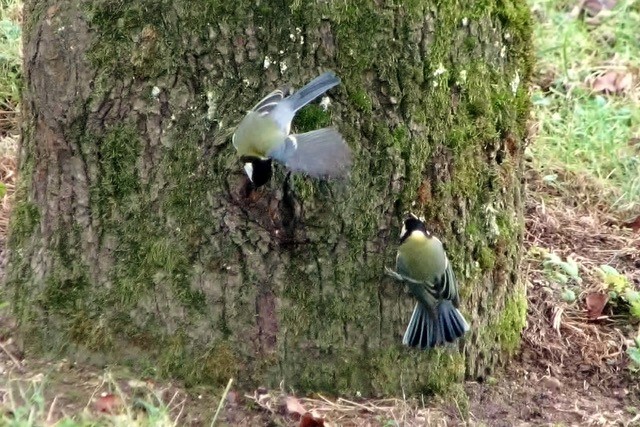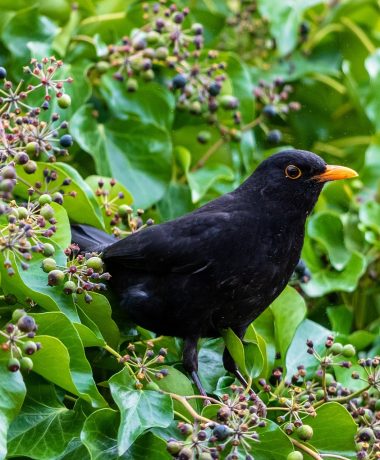(nur auf Englisch)
« Free birds do not suffer if we look at them. Let us remain dark and renounce ourselves by them » – René Char –
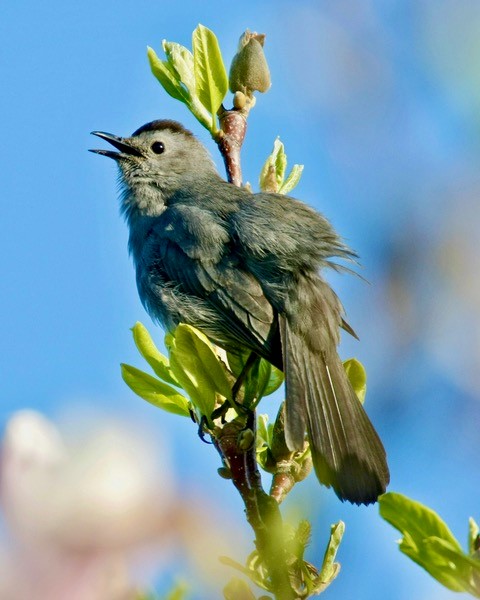
Nature has unsuspected powers, as Science regularly confirms it through experiments on the receptivity of plants to the songs of birds, especially trees, which would stimulate their strength and fruit production in the long run.
There is one non apathetic* bird which fascinates us with its song and its black cap reminding us of the « charcoal burner », that person making charcoal in the woods in the past: this bird is the great tit (Parus major), the largest and most popular of the six indigenous species. With its cousin, the blue tit, they often go wandering together near the feeding troughs.
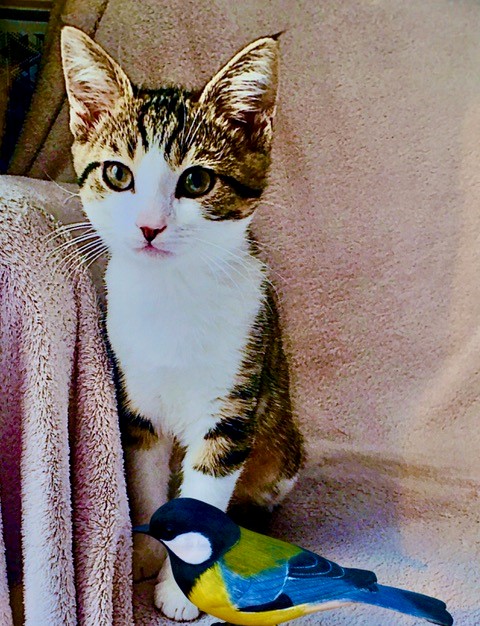
© Yves Meurville
Photo of the article: « A small bird and a small cat loved eachother kindly » (referring to the Juliette Gréco song about a small fish and a small bird).
Bewitched by this bird, I know a very special cat, named « Jack Jack », who respects it and keeps its distances, enjoying this live show given by this tiny, acrobatic, flying, lively and capricious creature, weighing as much as an envelope, easy to admire in autumn with some peanuts placed on the edge of a window.
The great tit seems to have such a soft plumage, but it can be really aggressive in spite of this richly adorned coat, with a yellow belly and black stripe, a khaki green back, white cheeks, blue wings. It is easy to identify after a bit of training during a pleasant family ornithology* class.
Sex differentiation can be made thanks to a black band on their belly, called the tie, wide for the male and narrower for the female.
The great tit evolves in the countryside, the vegetation of urban parks, like the Swiss Valley in Troyes, gardens… It always inspects feverishly twigs and wrinkled barks of old trees from above to protects itself from predators.
It eats a lot of aphids and caterpillars including urticants, and its eclecticism* even makes it hop towards oil seeds, insects, berries… It has remarkable nutritional needs, and a family can eat as much as 15,000 caterpillars in one season.
The male produces a metallic sound, close to the squeaking of a utensil on steel, that composes à l’envi*(on demand*) a rich and rhythmic vocabulary with 40 distinct notes that sans contredit* (undoubtedly*) seduce the female, when they are low in intensity.
Because of this linguistic specificity, the bird has been nicknamed a “locksmith”. Of a cave-dwelling* origin, this sparrow* haunts the excavations. During the spring, it looks for a nest to lay 10 spotted eggs, of 1.8 grams each, on horsehair and moss, that it will clean from the droppings of its young through all of the rearing.
![]()
Nest of tits © Yves Meurville ![]()
Tits on apple bark
During the 17-day brooding period in the dark, the female powerfully defends its offspring, fed with insects by the couple for about 18 days. As a result, to make a successful brood, it will require 9.000 beaks, at a rate of 500 per day for the entire nest.
If there is enough food in nature, there can be 2 broods per year. There is a story telling that, around 1920, English people discovered that their whole milk bottles, left in front of their houses at dawn, had their aluminium lids punctured by beaks.
They investigated and discovered that the great tit was responsible for it, and that it loved cream! If you ever adopt a cat, you will need to teach it as well to live in perfect harmony with such a beautiful fleeting bird, as René Char paint it in his poetry: « In our darkness, there is no space for Beauty. All the space is for Beauty ».
With the authorization of l’Est Eclair / Libération Champagne
Reading tip: the book « The cat and the bird », a story inspired from the work of the painter Paul Klee and of his painting « The cat and the bird », telling the story of a cat that was seduced by a bird “which it would devour with its eyes”.
LEXICON:
- Apathetic: (adjective): unable to react, lazy, with no energy.
- Ornithology: (noun): part of zoology that studies birds.
- Eclecticism: (noun): attitude of someone who is interested in many fields of knowledge.
- À l’envi (in French): on demand, as one wishes.
- Sans contredit (in French): undoubtedly, without possible contestation.
- Cave-dwelling: about an animal living in darkness, in caves and caverns.
- Sparrow: (noun): little bird living mainly in the trees.
Head photo: The bird © David Reed and featured photo: Bird © Mabel Amber
